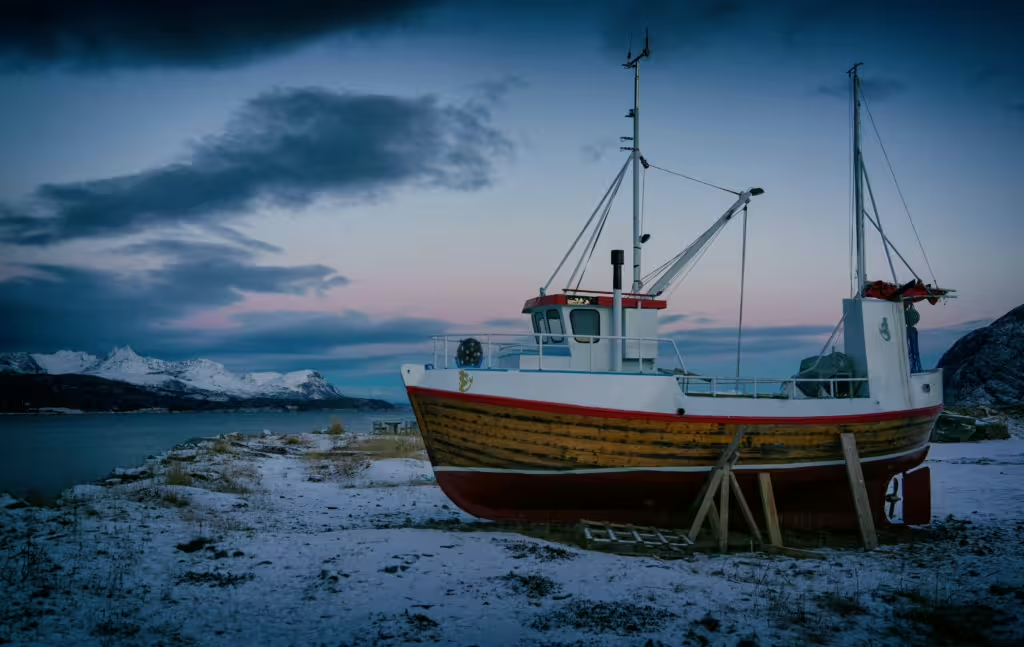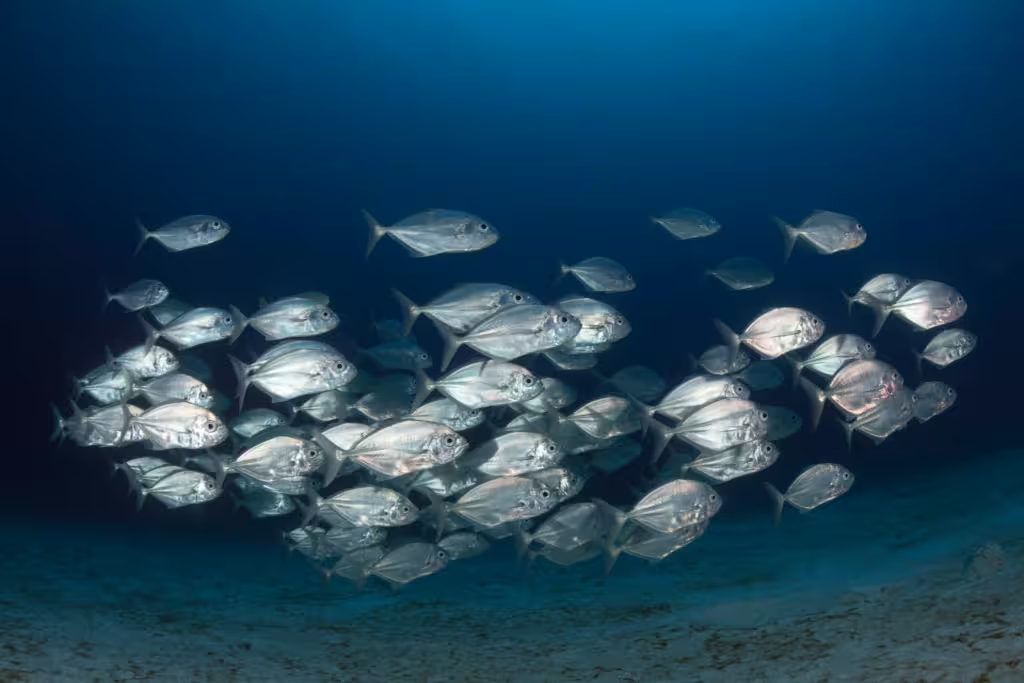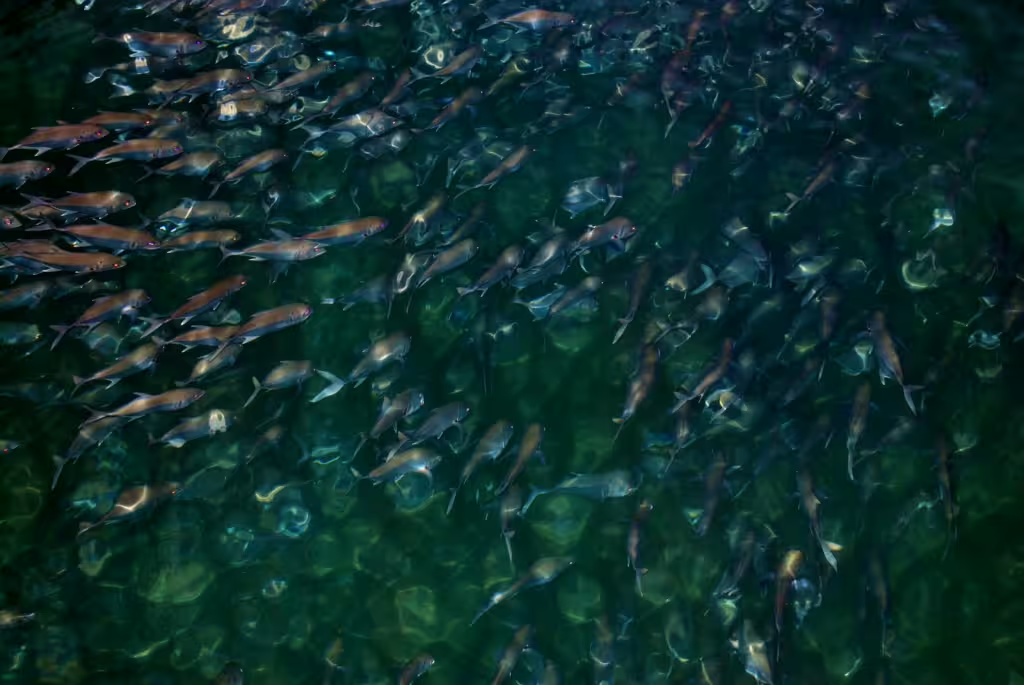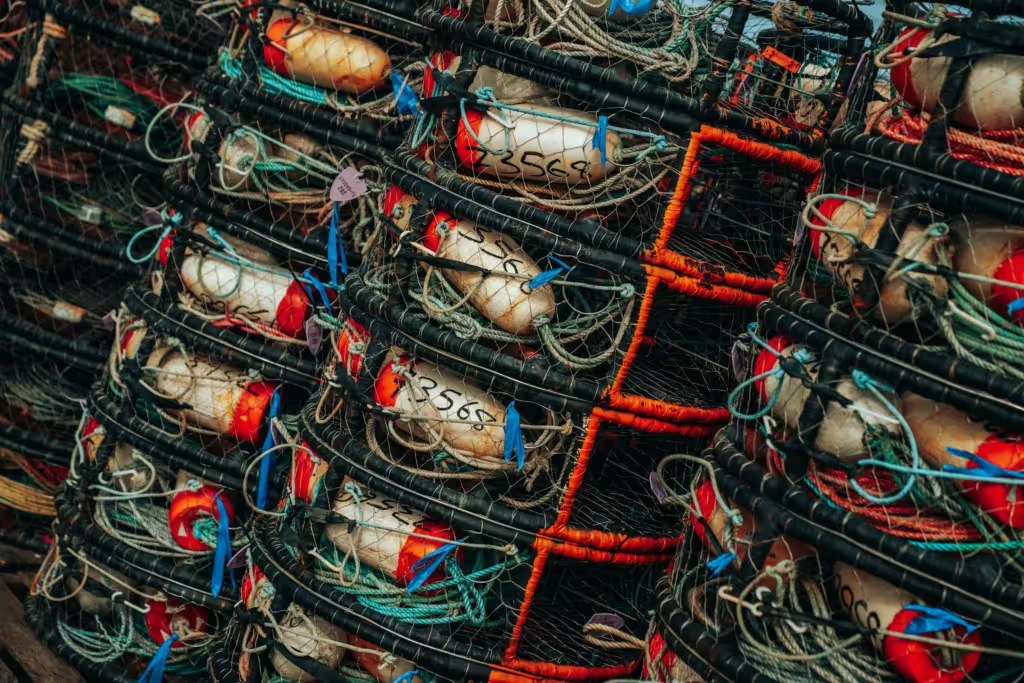Human beings eat a lot of fish, rather more than most people would believe, actually. According to a study done in 2018, the average human eats something like 44 pounds of fish a year. That is a heck of a lot of haddock, a ton of tuna…you get the gist. The point is, because of this massive need for fish, overfishing presents one of the most significant environmental challenges facing the modern world.
Overfishing occurs when fish and other marine species are harvested from the sea at rates faster than they can naturally reproduce. In short, we’re eating so much fish, so fast, that the oceans and rivers of the world just can’t keep up. This practice not only depletes fish stocks, it also has profound and far-reaching effects on a number of marine ecosystems. At the same time, unchecked overfishing can seriously impact the livelihoods of coastal communities and effect global food security.
In this article, we will attempt to define what overfishing is, how it affects marine species, and the causes behind it. Only by understanding the scope of this issue can we ensure a sustainable future. After all, it isn’t just marine ecosystems that depend on these healthy fish populations, it’s the entirety of the human population.

What Is Overfishing?
So, what do we mean when we say overfishing? This phenomenon occurs when fish populations are harvested at unsustainable levels, leading to a steep decline in population numbers. Most often, overfishing occurs when there is excessive fishing or illegal fishing activities within an area. Poor management or oversight within fishing industries can also lead to circumstances that encourage overfishing. Over time, this process causes fish stocks to become depleted. When that happens certain marine species can become endangered or even extinct in the wild.
Commercial fishing is driven by the growing demand for seafood, and sadly, this is one of the primary contributors to overfishing. Many modern fishing methods, like trawling and purse seining, are incredibly efficient at catching large amounts of fish; and therein lies the problem. These indiscriminate methods end up capturing not only the shoals of fish that people crave to eat, but also a number of species that were never meant to be caught. This bycatch, as it is commonly referred to, can include unintended animals like dolphins, turtles, and in some cases, seabirds.
Types of Overfishing
Below you can find the three primary types of overfishing:
- Growth overfishing: This type of overfishing occurs when fish are harvested before they reach their optimal size. Catching them too young reduces a species’ ability to reproduce and replenish their populations.
- Recruitment overfishing: Catching too many adult fish can create another overfishing problem. When the entire adult population of a species is so heavily fished that there are not enough reproductive individuals left to maintain a healthy population, that phenomenon is called recruitment overfishing.
- Ecosystem overfishing: This type of overfishing is severe, because it affects the balance of entire marine ecosystems. Overfishing of key species within an ecosystem disrupts the food chain so heavily that it causes cascading effects on other species, such as predators and prey.
Causes of Overfishing
As you have seen, overfishing isn’t just a matter of people “catching too many fish.” Indeed, the myriad causes of overfishing are as complex as they are catastrophic. These causes are interwoven with a host of economic, social, and environmental factors. Moreover, as the demand for fish as a food source continues to rise, sustainable management practices become more and more necessary. Unfortunately, most of those sustainable practices have been unable to keep pace with the rate of overfishing. Some of the key causes include:
Growing Global Demand for Seafood
Fish are an essential source of protein for millions of people worldwide, particularly in developing nations. The global population is growing all the time and the demand for seafood is growing with it. This exponential, ever-growing need has led to intensified fishing efforts, and not all of them are above board. Some fisheries and boats will do anything and everything to meet the growing need for fish or seafood products, even using illegal tactics when they need to get ahead.
Unsustainable Fishing Practices
Many of the most widely-used industrial fishing methods are designed to maximize the number of fish that a boat can catch in a given trip. Unfortunately, these methods rarely have sustainability in mind. One example is bottom trawling, which involves dragging large nets along the ocean floor. This method captures fish indiscriminately, while simultaneously destroying coral reefs and other undersea habitats.
Longline fishing isn’t much better. This fishing method uses lines that can stretch for miles, using thousands of baited hooks. When the lines come in, they’re often hooked up to a host of unintended species like sharks and curious seabirds.

Lack of Effective Fisheries Management
Poor regulation and enforcement of fishing quotas has also led to overfishing the world over. Weak governments, corrupt officials, poor management, and limited resources all contribute to this effect. These factors prevent authorities from effectively monitoring and controlling fishing activities. As a result, illegal, unreported, and unregulated (IUU) fishing further exacerbates the problem, since none of those actions take fish stocks or sustainability into consideration at all.
Subsidies and Economic Pressures
Many governments provide subsidies to the fishing industry, but while this sounds like a positive thing, economically, it is anything but. Such subsidies encourage overcapacity in the fishing fleet and sending out more boats puts added pressure on fish populations. These actions also drive fishermen to overfish in an attempt to meet potential quotas or expectations before the subsidies run out.
Bycatch and Discarding
As we discussed earlier, bycatch refers to the capture of non-target species when fishing. Some of the species that get caught up include marine mammals, sharks, and sea turtles to name a few. While many of these animals do eventually get thrown back into the sea, most of them are either dead or dying by the time they hit the water. This contributes greatly to the depletion of marine life and the slow, inevitable destruction of whole marine ecosystems.
The Impact of Overfishing on Marine Species
The sad truth is taht the impact of overfishing extends far beyond the depletion of fish stocks. Marine biodiversity is essential to the proliferation of healthy ecosystems. The disruption of those ecosystems that is caused by overfishing threatens the survival of many species, including human beings, incidentally.
Depletion of Fish Populations
The most immediate effect of overfishing is the depletion of certain fish populations, for example, those species that people like to eat the most. Tuna, cod, and haddock are all fish that people love to eat and nearly all of them have seen their numbers drastically reduced thanks to overfishing. One prime example is the once-abundant Atlantic cod fishery, which collapsed in the early 1990s due to overfishing. Sadly, that population has yet to recover fully.
When fish populations are overharvested, as in the case with the Atlantic cod, it reduces their ability to reproduce and replenish. Thus, populations get smaller and smaller, leading to an eventual collapse of a marine ecosystem or a potential extinction for that species.

Disruption of Marine Food Chains
By now you may have figured out how overfishing might disrupt the balance of marine food chains. Marine predators like sharks, dolphins, and large fish depend on smaller fish for food. Unfortunately, improper fishing can seriously deplete the populations of smaller fish, affecting the predator populations as well. Without enough food, predators begin to die out or are forced to move to new territories, disrupting other marine habitats along the way. The cascading effect can be catastrophic, especially in important underwater habitats like seagrass beds and coral reefs.
Threat to Endangered Species
Many endangered marine species are have been made even more endangered thanks to overfishing. Species like bluefin tuna, highly valued in the seafood market, are critically endangered due to overharvesting. Bycatch also affects endangered animals like sea turtles and certain rare sharks, Sharks, in particular, are a vital part of the marine food chain, and many are lost or maimed by bycatch every year.
Loss of Marine Biodiversity
Marine biodiversity is vital for ocean health. Overfishing reduces biodiversity by targeting specific species, but it also causes unintended harm to others through bycatch and the destruction of vital marine habitats like coral reefs. The effect only gets worse thanks to other factors like pollution, climate change, and habitat degradation. This is because a lack of biodiversity makes ecosystems less resilient to such extreme environmental alterations. Imagine this, overfishing of one species of herbivorous fish, which grazes on algae, can lead to unchecked algae growth within a coral reef. The algae then grows to excess, smothering the coral and reducing the biodiversity within the ecosystem and all surrounding ones.
Destruction of Marine Habitats
Bottom trawling captures more than fish. It rakes seagrass beds to tatters, breaks down essential coral reefs, stirs up clouds of undersea dust, and destroys habitats every time it hits the ocean floor. The subsequent loss of biodiversity and disruption of food webs affects all marine life.
Socioeconomic Impact of Overfishing
Humans have just as much to worry about when it comes to overfishing as the fish themselves! Overfishing has significant socioeconomic implications, particularly for coastal communities that rely on fishing for their livelihoods or food security.
Impact on Fisheries and Coastal Communities
Millions of people around the world depend on fishing as a primary source of income. Millions more depend on the fishing industry for food. Fishing has been a way of life since the beginning of time and coastal communities in developing countries see fishing is a way of life. But as commercial fisheries deplete fish stocks in untold numbers, these already tenuous communities face more than just economic hardship and food insecurity, they also face the potential loss of their cultural traditions tied to fishing.
Global Food Security
Fish is a major source of protein for billions of people across the globe. Reducing the availability of fish as a food source raises prices, which makes seafood less accessible to low-income populations that rely on it as a primary food source. We have already seen this happen. Overfishing has led to the collapse of fisheries in many nations, exacerbating issues of hunger and malnutrition in areas where other forms of protein are scarce or simply unavailable.
Economic Losses
The economic impact of overfishing should be of interest to some readers, especially those in positions to do something about it. This economic impact extends beyond the loss of livelihoods in fishing communities and goes all the way up to the folks in charge. No more fish equals no more profit. It also equates to fewer consumers. In essence, the depletion of fish stocks reduces the overall value of the fishing industry, leading to billions of dollars in lost revenue annually.
Solutions to Overfishing
While the impact of overfishing is significant, there are steps that can be taken to mitigate its effects. First and foremost, the main answer to all of this is to promote sustainable fishing practices. World governments and fishing industry executives should be leading the charge in this area, quite frankly. Without fish, millions will die; it’s a simple as that. Thus, effective oversight of the fishing industry should be a major initiative moving forward. This oversight will help keep fishing vessels in line and will weed out poaching and other such illegal behavior.
At the same time, people need to be educated about the supreme importance of sustainability and conservation as they pertain to marine ecosystems. With so many people relying on fish to meet their nutritional needs, the answers should be elementary. Our species cannot survive on this planet without these amazing marine animals.
True Investigator Says…
Overfishing is a serious threat to marine species and human populations. The destruction of marine ecosystems could have far-reaching consequences for biodiversity, food security, and the livelihoods of millions. Thankfully, as bad as it looks, we still have time to take action.
We can aim to enforce sustainable fisheries management, we can combat illegal fishing, increase consumer awareness, and protect other species from being caught up in the nets of our many fishing boats. Protecting our oceans ensures that fish populations are available for future generations, so it is crucial that we do so. Only by helping people recognize the importance of marine conservation and working together, can we restore balance to our oceans before it’s too late.
Discover more from TrueInvestigator
Subscribe to get the latest posts sent to your email.


